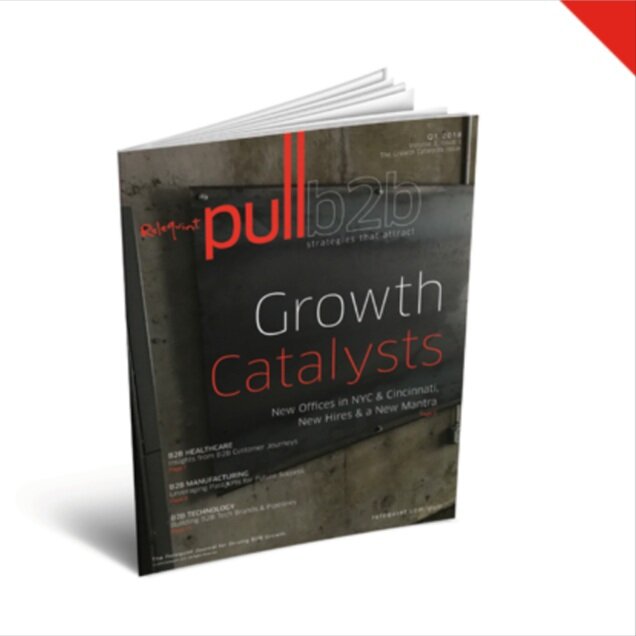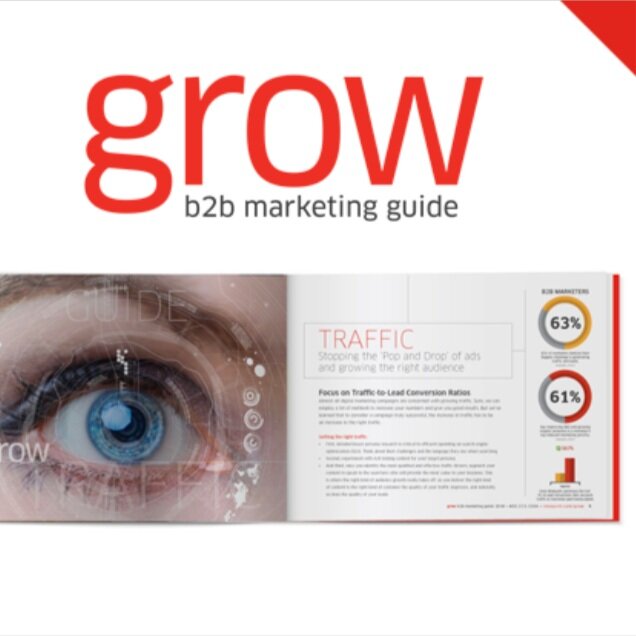 As a mid-sized B2B business marketer, cultivating and adding inbound marketing can sometimes feel like you’re working in an understaffed kitchen. Crafting useful content, developing and adjusting strategy, maintaining a good social media and web presence and refining personalization are just a handful of the many elements that go into the week-in week-out routine of B2B inbound.It’s similar to a never-ending dinner rush full of hungry customers where you not only have to whip up enough food for everybody, but you also have to tailor dishes to each table’s liking while acting on what information (if any) you’re getting about their preferences from the servers.
As a mid-sized B2B business marketer, cultivating and adding inbound marketing can sometimes feel like you’re working in an understaffed kitchen. Crafting useful content, developing and adjusting strategy, maintaining a good social media and web presence and refining personalization are just a handful of the many elements that go into the week-in week-out routine of B2B inbound.It’s similar to a never-ending dinner rush full of hungry customers where you not only have to whip up enough food for everybody, but you also have to tailor dishes to each table’s liking while acting on what information (if any) you’re getting about their preferences from the servers.

The new content sheen wears off quickly in a B2B world that is voraciously consuming information for purchasing decisions.
Because of the constant, high-stakes grind, it’s reasonable to ask yourself whether outsourcing some or all of your inbound efforts is a good move. You may not feel comfortable handing off the entirety of the work, as you and your employees are still the best stewards of gathering knowledge about your buyer personas. But implementing that information into a content strategy requires additional expertise. Inbound marketing is tailor-made to be outsourced if the approach is to collaborate with an expert digital marketing partner agency that has experience developing marketing automation strategies that convert.
The primary reason to outsource
Though every piece of content and every interaction with a lead is important to the overall process, the need for constant production and attentiveness makes those things ephemeral in nature. Sure, quality content can hold its relevance for months or longer, but the new content sheen wears off quickly in a B2B world that is voraciously consuming information for purchasing decisions.
If ever there is a fear of falling behind on content production, there is rationale for outsourcing that work. Again, the entire workload need not be offloaded onto a third party, because keystone content for campaigns (offer posts, whitepapers, ebooks, guides and other material designed to seal a conversion or nudge prospects to take the next step) needs to be truest to your voice, and thus may be better left to in-house oversight.
But blog posts, lead nurturing emails, social posts and the like, which are produced to maintain a regular output, can be handled by the right agency. Outsourced inbound strategy and execution is a fantastic way to maintain regular production and build up a healthy coffer of ready-to-post content for a great deal less cost than hiring on staff or trying to develop full sales funnel strategies in-house.
The right way and the wrong way
Inbound actions only work when they’re being done for the correct buyer persona (i.e. prospects) and not because it’s what Google or marketing thought leaders want you to do. Not every piece of modern marketing wisdom works for every B2B company, but the morsels that do work are always those which improve your ability to build a relationship with buyers and nurture leads.
 The same goes for outsourcing your marketing efforts. If you hand off some responsibilities to a third party, the only difference a prospect should notice—if any at all—should be a positive one in the form of greater consistency. Good outsourcing creates a more disciplined machine that supports your more incisive strategy. The voice of your outsourced content and the tone a buyer experiences when dealing directly with sales should still be consistent.
The same goes for outsourcing your marketing efforts. If you hand off some responsibilities to a third party, the only difference a prospect should notice—if any at all—should be a positive one in the form of greater consistency. Good outsourcing creates a more disciplined machine that supports your more incisive strategy. The voice of your outsourced content and the tone a buyer experiences when dealing directly with sales should still be consistent.
You’re outsourcing for the wrong reasons when you sacrifice consistency for convenience and fail to glean insights from your outsourced content compared to that which was previously crafted in-house. It takes trust and working with an outsourcing partner that gets your ethos, voice and overarching strategy. Your agency should be proactive, leading you to the most actionable insights and recommending a strategy for acting on those prospects that are actively converting through the inbound funnel.
Other elements to consider
Of course, content creation isn’t the only action you can outsource. You should consider brand positioning and messaging, as a third-party expert can provide valuable insights to implement within the inbound strategy. You can also enlist outside help for recurring responsibilities like search engine optimization, maintaining multiple pay-per-click campaigns and managing social media and other online communities.
In all of these decisions, consider whether these measures will improve your ability to nurture leads. If having some of these tasks off of your plate allow for a greater attentiveness to the needs of your ideal buyer personas, then it’s worthwhile to offload them to third parties, so long as they don’t inhibit the overall process of conversion. If everyone can be on the same page about who your ideal buyers are, what they need, and how to provide the information required, partnering with someone who can devote all of their time to one element of your overall marketing strategy can be very beneficial.

B2B buyers will notice inconsistency, and forsaking a consistent experience for convenience can hurt you in the long run.
Outsourcing B2B marketing efforts requires a subjective and introspective assessment. It all comes down to allocating the precious resources of time and money properly in order to create a stronger overall inbound strategy. If handing off some aspects to outside help can help you achieve the ultimate goal of effective lead gathering, nurturing and conversion, then it’s worth entertaining. The crucial thing to remember is that it can’t be at the expense of a unified buyer experience throughout their purchasing journey. B2B buyers will notice inconsistency, and forsaking a consistent experience for convenience can hurt you in the long run. Choose an inbound agency that understands brand strategy through credible and relevant B2B case studies. ![]()







 By
By 